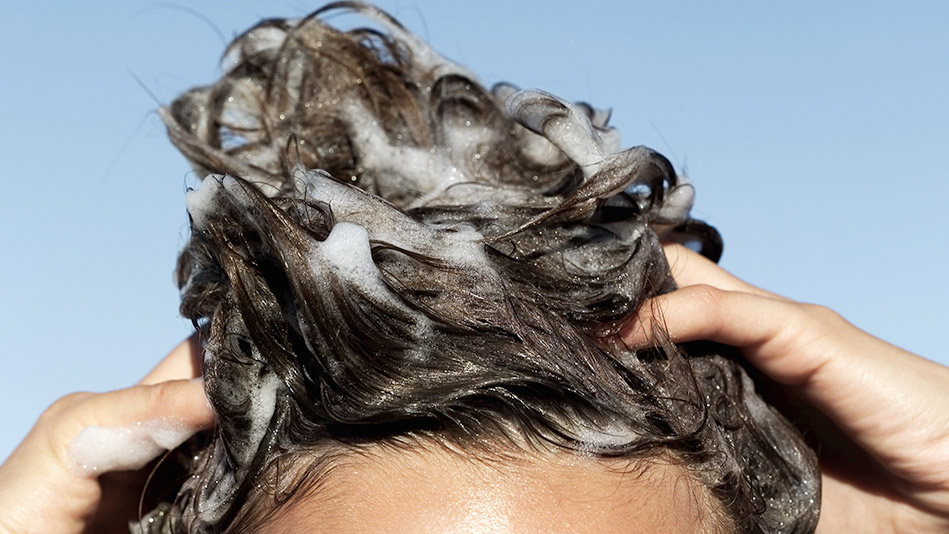Is There a Shampoo That Colors Your Hair? An In-Depth Look
For beauticians and hair care specialists, the question is there a shampoo that colors your hair is an exciting and essential one. With advancements in the art and science of hair care, the demand for multitasking products like shampoos that not only clean but also enhance hair color has skyrocketed. So, lets dive deep into the world of hair coloring shampoos and examine how they work, what makes them effective, and why they are gaining popularity among beauty enthusiasts around the globe.

Understanding Hair Coloring Shampoos
Hair coloring shampoos are formulated to combine cleansing properties with added color pigments. These pigments deposit color onto your hair strands during the washing process. Unlike traditional hair dye, these shampoos provide a temporary or semi-permanent color coating rather than penetrating the hair shaft.
Beauticians, whether targeting clients with greys or individuals seeking to refresh their color between salon visits, may find it useful to know the exact benefits and science behind these products. Some popular benefits of these shampoos include:
- Easier application compared to traditional dyes
- Minimal commitment, as colors usually fade within a few washes
- Enriched formulations that often include hair-nourishing ingredients
How Do Coloring Shampoos Work?
Hair coloring shampoos work by depositing pigments onto the surface of the hair. These pigments adhere to your hair shaft during shampooing, often helped by certain agents that allow better color retention. Depending on the formula, the coloring effect can last anywhere from one wash to a week or more.
It's also interesting to note that these shampoos come in both natural and chemical variants. For stylists and beauticians working with eco-conscious clients, there are plant-based coloring shampoos featuring ingredients like henna and hibiscus. To learn more about safer hair care approaches, check out this guide on hair growth shampoos.
Best Hair Coloring Shampoos Available Today
With so many options available, it can be difficult to choose the right hair coloring shampoo for your clients needs. Lets break it down by type and performance:
1. Temporary Hair Coloring Shampoos
These shampoos provide quick, wash-out color. Beauticians often recommend these for clients who want to experiment with unique hues, such as pinks or purples, that vanish after one or two washes. Temporary coloring shampoos are ideal for special occasions or for testing out new looks.
2. Semi-Permanent Coloring Shampoos
This category lasts longer than temporary options, often about 510 washes. Semi-permanent shampoos include more durable pigments and are perfect for refreshing existing hair color or covering greys discreetly.
3. Grey Coverage Shampoos
If your client is concerned about greys, opt for products designed specifically to provide grey coverage. These typically deposit darker tones like black, brown, or chestnut into grey areas while maintaining natural streaks. For beauticians keen on addressing grey hair issues, here is a useful article on hair care techniques without traditional shampoo.
Who Should Use Hair Coloring Shampoo?
- Clients looking for a quick refresh between full dye treatments.
- Individuals hesitant about committing to permanent hair color.
- People experimenting with fun, temporary looks.
- Those who need quick solutions to cover grey hairs.
If youre unsure about which category a client falls into, look out for their lifestyle and daily schedules. Active individuals, for example, may appreciate the permanence of semi-permanent options.
Potential Drawbacks to Be Wary Of
As with every product, hair coloring shampoos come with their own set of disadvantages. Some clients may experience issues such as:
- Color bleeding or fading after a few washes
- Limited shade availability compared to traditional dyes
- Risk of uneven color deposition
- Potential for staining skin or fabrics when applied
It's important to educate your clients about the trade-offs and recommend a post-wash treatment routine to extend the life of their shampoo-deposited color.
Top Ingredients to Look For
When selecting a hair coloring shampoo, whether for yourself or your clients, the composition matters. Here are a few key ingredients beauticians should take note of:
- Color pigments: Ensure that the pigments suit your clients hair type and base color.
- Ethanolamines: These agents help color pigments stick better to the hair strands.
- Plant-based nutrients: Look for shampoos enhanced with aloe vera, hibiscus, or henna.
To better understand which formulation fits each hair type, click on this helpful guide on choosing the right shampoo.
Beautician Tips for Applying Hair Coloring Shampoo
Here are a few insider techniques to ensure successful application for clients:
- Pre-wash hair for an even surface before coloring shampoo application.
- Wear gloves to prevent staining your hands.
- Allow the shampoo to sit on hair for the recommended duration, as per packaging instructions.
- Rinse with cool water to lock in the color.
FAQ Section
1. Can coloring shampoos damage your hair?
Hair coloring shampoos, when used occasionally and as directed, are usually safe. Opt for brands with added conditioning ingredients to avoid dryness.
2. How is a coloring shampoo different from a toner?
Toners are used to adjust hair undertones, whereas shampoo deposits visible color pigments onto hair strands.
3. Are there natural alternatives available?
Yes! Several brands offer plant-based options like henna shampoos that are chemical-free and safer for sensitive scalps.
:max_bytes(150000):strip_icc()/052323-wash-hair-lead-030512bbbc09454e9c8a8916bd97c986.jpg)
Conclusion
For beauticians addressing the question of is there a shampoo that colors your hair, the answer is a resounding yes! These innovative products are carving a niche in the hair care industry, offering new opportunities for professionals to expand their expertise and client offerings. By understanding the science, benefits, and drawbacks of hair coloring shampoos, youll be better equipped to guide your clients toward achieving their desired results.
This article contains affiliate links. We may earn a commission at no extra cost to you.
